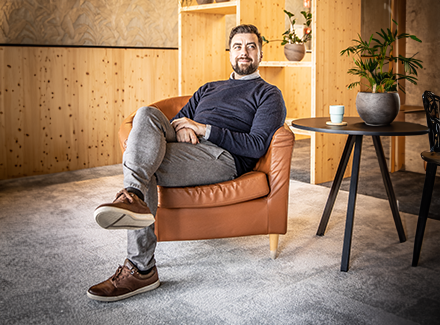Organising elections is no easy task. Just getting the polling stations and count centres ready to go involves a ton of administration. However, seven Flemish municipalities thought the process could be simplified. With the help of the autonomous provincial company VERA, they joined forces to digitalise this time- and labor-intensive task. As project coordinator for VERA, I helped steer the initiative in the right direction. Time for a short review!
The initiative for this innovative project came from the Flemish Brabant municipality of Lennik. During the previous elections, Lennik’s Civil Affairs department sent more than 1,200 letters to assessors and counters. And that was just the invitations, which resulted in the same number of replies. Some accepted while others sent refusals, which the board in turn could challenge, resulting in further follow-up. Officials had to process all these letters in a very short timeframe. And all this came on top of their normal daily duties, causing a lot of additional stress during an already hectic period.
Add to this the high cost of all that correspondence and the bill quickly racks up. This manual, paper workflow costs our municipalities a tremendous amount of time and taxpayer money, which could be better spent in other areas. As the mayor of Lennik, Irina De Knop, says, “For us, digitalisation of services is not only a way to simplify administrative processes and make them more efficient, it’s also a way to become more customer friendly and save our citizens time.”
Switching to digital (and back)
Lennik decided to improve the existing system by digitalising it. The ultimate goal Mayor De Knop had in mind was allowing citizens to indicate their availability with just a few clicks. If they had a valid reason for not fulfilling their civic duty, then they also had to be able to easily indicate this digitally. Last but not least, every citizen should always have the opportunity to switch from analogue to digital or vice versa, depending on their preference.
By digitalising as much as possible, Civil Affairs employees would be relieved of much of the extra workload. At the same time, they would have a clear overview of the responses coming in.
To achieve all this, Lennik joined forces with six other municipalities in Flanders: Beveren, Lier, Meise, Sint-Pieters-Leeuw, Torhout, and Wetteren. They were subsidised by Municipality Without a Town Hall (Gemeente zonder gemeentehuis), a project by Flemish Resilience, the recovery policy of the Flemish Government, financed by the European Union. With this recovery project, Flanders sought to support cities and municipalities to jointly develop innovative, digital solutions to create more customer-oriented services.
Project coordination: what’s in a name?
To manage the project, Lennik looked to VERA, the autonomous provincial company of Flemish Brabant that supports local authorities with IT, digitalisation, and e-government. VERA in turn engaged external expertise from Tobania, which is now part of the Sopra Steria group. So, I became very closely involved in this project.
As project coordinator, I organised all the meetings. For example, every month we had a working meeting on site, at one of the municipalities. These meetings were often intense but always interesting. I also monitored the budget and managed expectations, which is key to keeping everyone on the same page. Sometimes it was also my job to challenge people. If someone had a certain idea or expectation, I challenged them to consider its importance: was it really crucial? Was it a recurring issue or a rare and exceptional problem?
Part of the challenge was to get people as far down the digitalisation road as possible. Municipal officials had to continue doing what they’re good at, but we looked at it through a digital lens, based on our knowledge of digital transformation — the perfect role for both VERA and Sopra Steria. Everyone worked to their own strengths: the supplier took care of the software, the Civil Affairs department ensured that we pursued the right goal in the correct manner, and we laid down a digital path.
Steps to success
As a first step, we carefully mapped out the entire process for organising polling stations and count centres. That process differs by municipality, so I visited each one and discussed this with them. A project of this size and significance involves many stakeholders, each with their own agendas and interests. To make everything as tangible as possible, we also created personas. This way we always kept the right profiles in mind with every step we took.
At every meeting we explained the latest project developments and previewed the next phase, and we consistently used demos to make everything as tangible as possible using concrete examples. In this way, together with Lennik and its six partners, we managed to digitalise a cumbersome, time-consuming, and expensive process.
The project turned out a great success, because today almost all of Flemish Brabant organises polling stations and count centres digitally. “Two in three municipalities already use the application today, and half of all citizens who are contacted digitally respond digitally. So, it’s definitely a successful process,” says Mayor De Knop. And I heartily concur!
Do you need support with a digitalization project? Curious about what other benefits we have in store for you in the field of project management? Drop me a line!

Philippe KYAMETIS